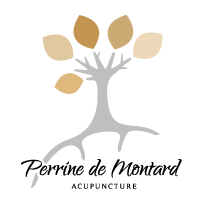
FAQs
What is acupuncture?
Acupuncture is the insertion of fine single use stainless steel needles into predetermined points on the body for therapeutic effect. The word ‘acupuncture’ is derived from the Latin words ‘acu’ which means needle and ‘punctura’ which translates into puncture, a term first proposed by the Dutch physician, William Ten Rhyne, in the 17th century. Acupuncture is one aspect of Traditional Chinese Medicine (usually abbreviated to TCM) which also includes Chinese Herbal Medicine, Tuina (a form of massage), Dietary Therapy, and special Exercise Therapy known as Qi Gong.
Why should I see an acupuncturist?
Patients seek a natural, holistic medical approach to healthcare to avoid the side effects.
Can acupuncture help me even if I feel healthy?
Yes, absolutely. Many patients come in for regular maintenance treatments to stay healthy through the year. Acupuncturists see subtle signs of disease processes at work before symptoms begin to interfere with daily life. Chinese medicine effectively addresses these issues, preventing future problems from occurring. Because acupuncture treatments are so deeply relaxing, many patients find regular, maintenance treatments beneficial for stress relief.
Does acupuncture hurt?
Some patients feel a slight 'Qi' sensation when the needle is inserted: most feel nothing at all. These 'Qi sensations' range from local warmth or tingling, to a brief ache or heaviness in the area being needled. They indicate favorable results from the acupuncture treatment, as Qi has been strongly contacted. By and large patients describe these sensations as fleeting and the treatment experience as deeply relaxing. In fact, many patients find acupuncture so relaxing that they fall asleep during treatment.
Are the needles safe?
Yes, acupuncturists use sterile, disposable needles. They are used once then hygienically disposed of.
Are there any side effects to acupuncture?
One of the reasons that acupuncture has been so well embraced in the West may have to do with its low rate of side effects.
"One of the advantages of acupuncture is that the incidence of adverse effects is substantially lower than that of many drugs or other accepted medical procedures used for the same conditions." (Acupuncture. NIH Consens Statement 1997 Nov 3-5; 15 (5): 9.)
What should I wear for the acupuncture treatments?
Wear loose fitted, comfortable clothing. You might want to bring a loose top and shorts to allow the acupuncturist easy access to the body. Most of the points needled are on the torso and limbs, below the elbows and knees. Exceptions are for pain, where local points will be used in the affected area, such as the shoulder.
Should I keep my appointment if I'm sick?
Yes. Acupuncture is highly effective for treating acute conditions, such as colds and flus, stomach viruses and headaches. Patients report immediate improvement in symptoms after acupuncture treatment.
Many patients call immediately to schedule a treatment when they first notice cold or flu symptoms. These include healthcare practitioners who don't want to get their patients sick, business professionals who are too busy for a sick day or two, and patients who are chronically ill and want to 'get this one over with, quickly'.
So if you're sick, call your acupuncturist and make an appointment. If you have an appointment scheduled, keep it.
Is acupuncture covered by insurance?
The cost of Acupuncture treatment is reimbursable by Vivas Health, VHI and Laya Healthcare Outpatient Schemes and Members of the ACI are recognised by Vivas Health, HSF Health Plan, VHI and Laya Healthcare in this regard (check your policy and excess for details).
